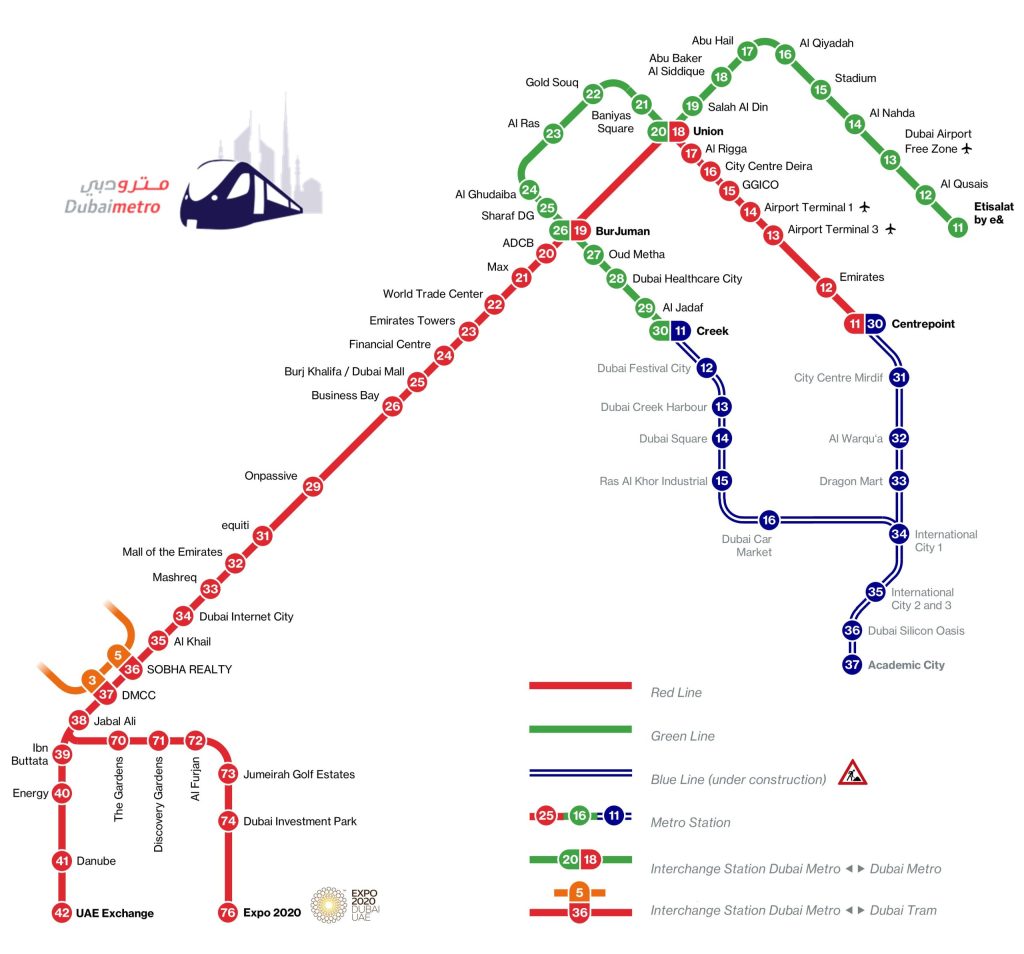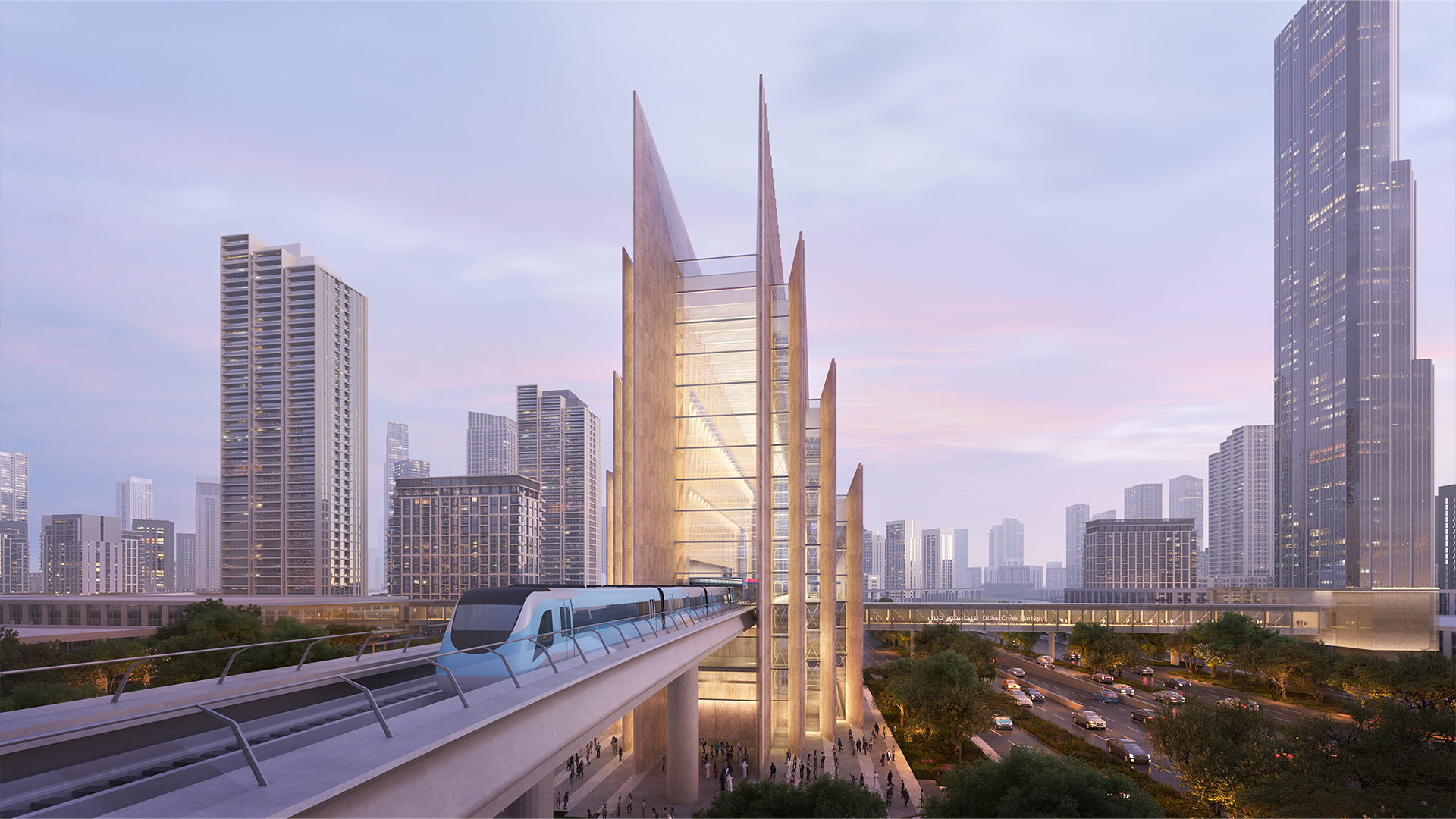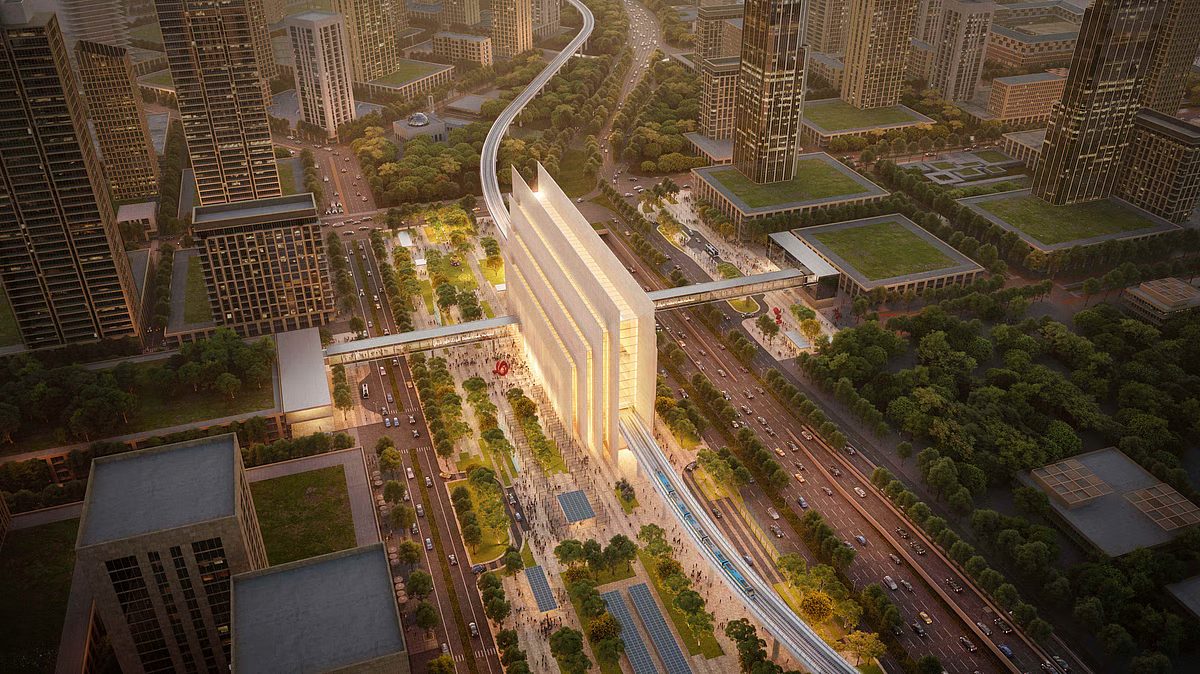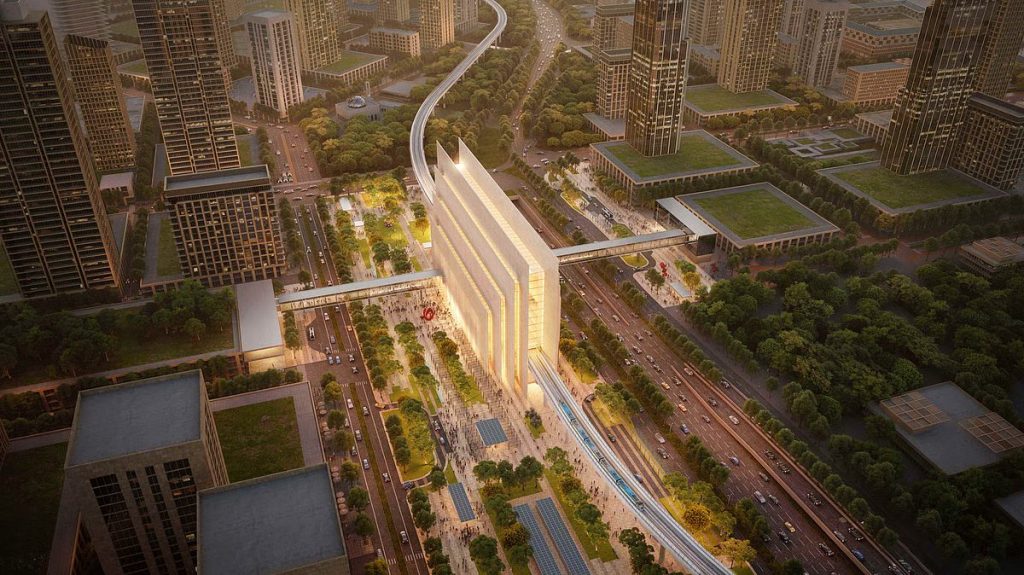Dubai Metro: Overview of Dubai’s Rail Network
The Dubai Metro operates as the emirate’s primary rail system, spanning 89.6 km across Red and Green Lines with 55 stations. It accounts for 36.5% of public transport ridership, totaling 143.9 million passengers in H1 2025. Managed by RTA, the network integrates with buses, trams, and taxis via Nol cards. It supports the Dubai 2040 Urban Master Plan by providing transit access for 55% of residents within 800 meters of stations, enabling the 20-minute city model.
Daily operations handle peaks from events like GITEX, with recent parking expansions at Centrepoint and e& stations. Projections indicate over 300 million annual riders by 2026.

What makes Dubai Metro special: Gold Class, Best Metro Stations & more
Dubai Metro sets benchmarks beyond basic transit. Fully driverless (GoA4), it includes air-conditioned stations with platform screen doors, free Wi-Fi, dynamic digital art, and dedicated women/children cars on every train—features rare in peer systems like London Underground or New York Subway. Solar-powered stations and regenerative braking add efficiency, while expansions prioritize architectural icons. These elements elevate daily commutes, supporting Dubai 2040’s livability targets.
Dubai Metro Gold Class, Women & Children cars
Gold Class transforms routine rides into premium experiences, while dedicated Women & Children cars ensure safety and comfort. Gold occupies the front cabin; Women & Children reserves the rear car on every trainset (accessible to qualifying Silver/Gold passengers). Key perks:
| Aspect | Silver (Standard) | Gold Class | Women & Children Car |
|---|---|---|---|
| Location | Middle/rear cars | Front cabin | Rear car only |
| Access | Any Nol Silver | Nol Gold (AED 25 card) | Free for women/children (any Nol) |
| Seating | Padded, dense | Leather, spacious, panoramic views | Standard padded; priority for families |
| Fares | Base (AED 3–7.50) | Double (AED 6–15) | No extra |
| Capacity | 80% of train | Front only (~20%) | Rear only (~20%) |
| Unique | Full train access | Quiet zones, legroom | Gender/family priority; attendants |
Usage Insight: Gold suits executives (~10-15% peak uptake); Women & Children enhances inclusivity (high demand during family hours). Both extend to trams, aligning with Dubai’s tiered mobility.
Emaar Properties Station – World’s Most Beautiful Metro Station?

Emaar Properties Station redefines metro architecture. At 74 meters—the world’s highest—this Blue Line icon (Station 5) perches atop Dubai Creek Harbour developments. Designed by Skidmore, Owings & Merrill (SOM), its flowing seashell form evokes the Creek, blending with Emaar’s waterfront vision. Spans 11,000 sqm over four levels; daily capacity: 160,000 passengers.
Standout Specs:
| Feature | Details |
|---|---|
| Elevation | 74m (eclipses prior records) |
| Size | 11,000 sqm; 4 levels |
| Design | Seashell-inspired; glass/steel |
| Capacity | 160k pax/day |
| Integrations | Retail, green spaces, art; Creek bridge (1.3km) |
| Opening | Sep 2029 |

Strategic Fit: Anchors high-density corridor; links DAZ/AV zones; boosts 20-minute access to Expo/Silicon Oasis. Unique Angle: Unlike utilitarian stations elsewhere, it functions as a destination—mirroring Burj Khalifa’s draw. Foundation laid Jun 9, 2025, by Sheikh Mohammed.
History of the Dubai Metro: Rapid expansion since 2006
Dubai Metro planning addressed congestion from population growth exceeding 1 million by 2000. It launched as the Middle East’s first driverless system.
| Year | Milestone |
|---|---|
| 1997 | Proposal amid traffic surge. |
| 2003 | Sheikh Mohammed approval; AED 15B contract. |
| 2006 | Red Line construction starts. |
| Sep 9, 2009 | Red Line partial open at 9:09:09 AM; Sheikh Mohammed first rider; 110k Day 1. |
| 2011 | Full Red (52.4 km); Green Line launch Sep 9. |
| 2014 | Al Jaddaf, Creek stations. |
| 2020 | Route 2020 for Expo 2020. |
| 2021 | Keolis MHI takes operations. |
| 2025 | Blue Line groundbreaking Jun 9. |
16 years in, annual ridership reached ~275 million in 2024.
Technical Specifications
- Automation: GoA4 (full driverless); CBTC signaling.
- Trains: 99 Alstom Metropolis sets; 5-car (up to 696 passengers); 750V DC third rail.
- Speed: Max 100 km/h operational.
- Energy: Regenerative braking; solar-powered stations.
- Safety: Platform screen doors at all 55 stations.

